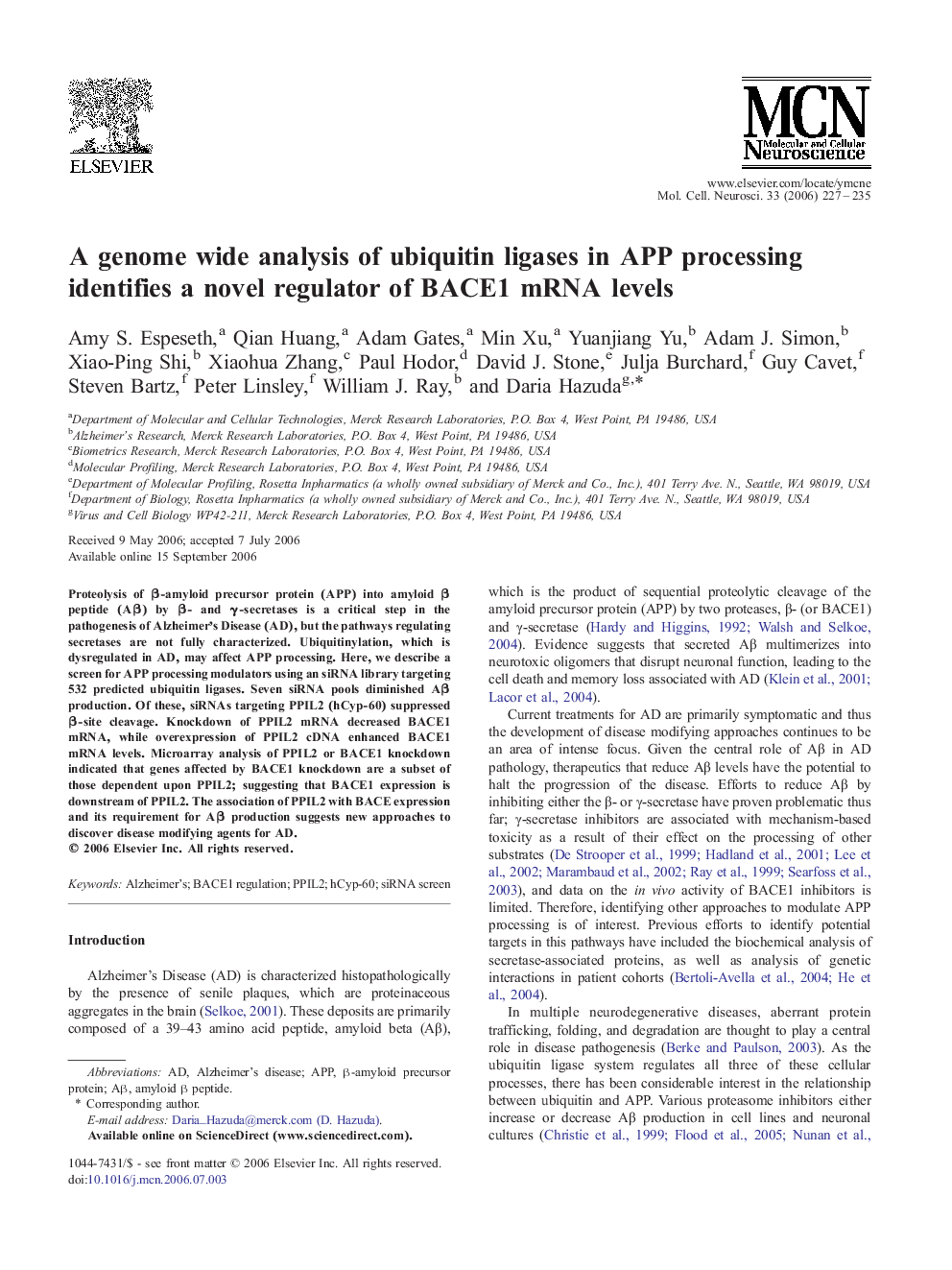| Article ID | Journal | Published Year | Pages | File Type |
|---|---|---|---|---|
| 2199542 | Molecular and Cellular Neuroscience | 2006 | 9 Pages |
Proteolysis of β-amyloid precursor protein (APP) into amyloid β peptide (Aβ) by β- and γ-secretases is a critical step in the pathogenesis of Alzheimer's Disease (AD), but the pathways regulating secretases are not fully characterized. Ubiquitinylation, which is dysregulated in AD, may affect APP processing. Here, we describe a screen for APP processing modulators using an siRNA library targeting 532 predicted ubiquitin ligases. Seven siRNA pools diminished Aβ production. Of these, siRNAs targeting PPIL2 (hCyp-60) suppressed β-site cleavage. Knockdown of PPIL2 mRNA decreased BACE1 mRNA, while overexpression of PPIL2 cDNA enhanced BACE1 mRNA levels. Microarray analysis of PPIL2 or BACE1 knockdown indicated that genes affected by BACE1 knockdown are a subset of those dependent upon PPIL2; suggesting that BACE1 expression is downstream of PPIL2. The association of PPIL2 with BACE expression and its requirement for Aβ production suggests new approaches to discover disease modifying agents for AD.
